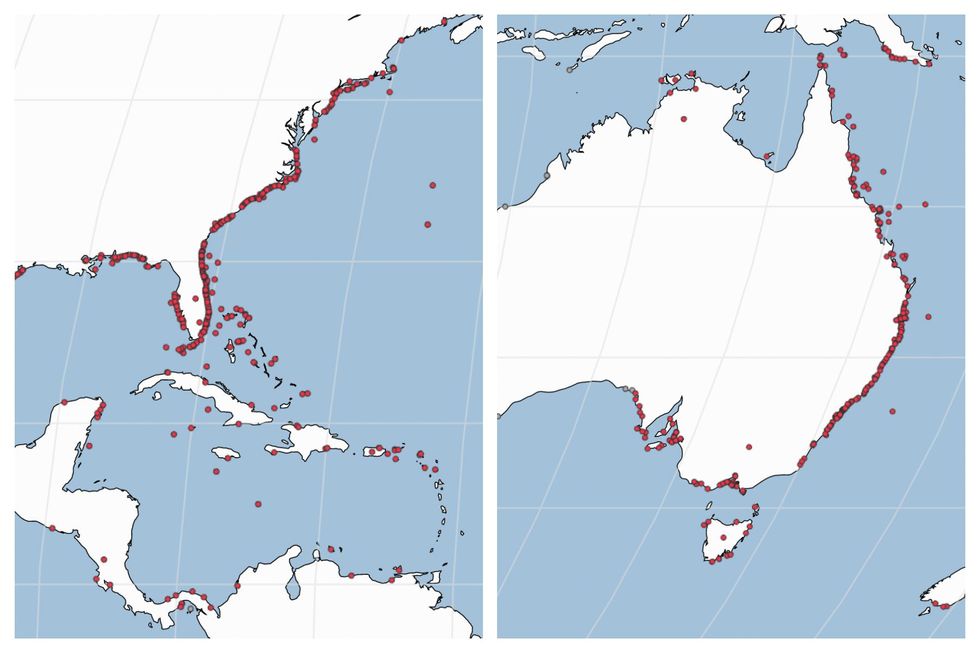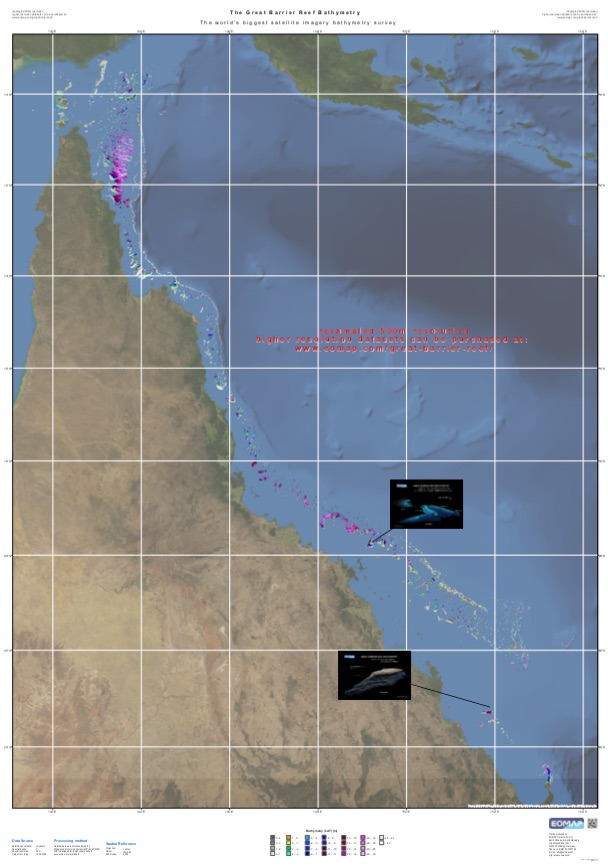Staying Safe In The Sunshine State: What To Know About Shark Attack Florida Incidents
Table of Contents
- Introduction
- Recent Incidents in Florida Waters
- Florida's Standing in Shark Incidents
- Why Florida Sees More Shark Interactions
- Practical Tips for Beachgoers
- FAQ About Shark Attacks in Florida
- Looking Ahead and Staying Informed
Introduction
Florida, with its beautiful beaches and warm ocean currents, draws countless visitors each year, yet it's also a place where interactions between people and marine life, including sharks, sometimes occur. So, when we hear news about a shark attack Florida incident, it's natural to feel a bit of concern, especially if you love spending time near the ocean. It's really about understanding what happens, rather than letting fear take over, and knowing how to enjoy the water safely.
Just recently, a Canadian tourist faced a serious situation, being hurt and needing hospital care in South Florida after a shark attack. The man, who is in his 40s, was at a beach in Hollywood when this happened, according to officials. This kind of event, you know, can certainly make anyone think more about their beach plans.
We often hear about these events, and it's a bit of a reminder that while the ocean offers so much fun, it's also a wild place. This article will help you get a better sense of what's going on with shark incidents in Florida, giving you some good information and ways to keep yourself and your loved ones secure when you visit the coast.
Recent Incidents in Florida Waters
Just this year, Florida has seen a few notable shark interactions that really bring home the need for awareness. A Canadian visitor, for instance, sustained serious injuries and was hospitalized in South Florida following a shark attack. This individual, a man in his forties, had been enjoying a beach in Hollywood, a very popular spot, when the incident took place, according to reports from officials and CBS12. It's a very unsettling thing to hear about, to be honest.
Then, there were other events, like the one in Walton County, Florida, where three swimmers, including two teenagers, were hurt in two separate shark attacks on a single Friday. These events happened within just 90 minutes of each other, which is quite unusual and, you know, it caught a lot of attention. One of these incidents involved a shark, possibly a bull shark, which caused a severe injury to a person's wrist; doctors were later able to reattach it, which is pretty amazing.
Another very recent account involved a child recovering in a Florida hospital after a shark attacked them while they were swimming along the state's Gulf Coast on a Wednesday. First responders quickly helped, which is a good thing. Florida fire officials, after these incidents, still asked beachgoers to be careful on Sunday, especially after the three people were injured in those two quick attacks. It shows how quickly things can change in the water, doesn't it?
These specific stories, you see, help us understand the human side of these statistics. They are not just numbers; they are real people with real experiences. Learning about these situations can help everyone appreciate the importance of being alert and making smart choices when spending time at the beach. It's almost like a reminder to respect the ocean's power.
Florida's Standing in Shark Incidents
Florida, it turns out, has more shark incidents than any other state in the country. This isn't really a new development; it's been the case for quite some time. For example, the University of Florida's International Shark Attack File, a very respected source, reported 14 shark bites in Florida for the year 2024. This number is a bit lower than the 16 reported in 2023, which is a slight decrease, but still, it's a significant figure.
While these kinds of events can sometimes make our sunny shores seem a little less inviting, it's important to get a good sense of how humans and marine life interact. Understanding these dynamics helps put things into perspective. It's not about being afraid, but rather about being informed, you know, so we can all share the environment safely.
The focus, especially after events like the one involving the Canadian tourist or the multiple incidents in Walton County, isn't on creating fear. Instead, it really turns to the idea of survival and how people recover from these very rare, yet serious, situations. We've even heard stories of shark attack survivors, which is quite inspiring, actually.
The consistency of Florida having the most reported bites means that researchers and local authorities are often studying these interactions. They work to provide updated information, like the weekly updates on shark attacks in Florida, to help the public stay aware. This ongoing effort is a very important part of managing beach safety for everyone who loves the coast.
Why Florida Sees More Shark Interactions
There are some clear reasons why Florida, more than other places, experiences a higher number of shark interactions. One big factor has to do with fish, specifically what are known as bait fish. Gavin Naylor, who is the director of the Florida Museum of Natural History’s shark research program, has spoken about this. He believes that the presence of menhaden fish, which are small bait fish, plays a significant role. Sharks are naturally drawn to these fish, so where the bait fish are, the sharks are often nearby, too.
Another element is simply the sheer number of people in the water. Florida has miles and miles of beautiful coastline, and millions of people visit or live here. More people swimming, surfing, and enjoying the ocean means there's a greater chance for encounters with marine life. It's a bit of a numbers game, really.
The warm waters around Florida also create a very welcoming environment for many different kinds of shark species. Bull sharks, for instance, are known to swim in shallow, murky waters, and they can even go into freshwater rivers, which increases their potential overlap with human activities. The incident where a shark, possibly a bull shark, severed a person's wrist and it was later reattached, highlights the presence of these powerful creatures.
Additionally, the changing seasons and ocean currents can influence where fish schools gather, and consequently, where sharks might be feeding. This constant movement and the natural cycle of marine life mean that the ocean is always a dynamic place. Understanding these environmental factors helps explain why Florida has such a high count of these incidents, year after year. It's just part of the natural world, in a way.
Practical Tips for Beachgoers
Knowing about shark incidents shouldn't stop you from enjoying Florida's amazing beaches, but it should encourage smart choices. There are some very practical things you can do to reduce your chances of a close encounter. For one, always swim with a friend or in a group. There's safety in numbers, you know.
It's also a good idea to avoid swimming at dawn or dusk, or even at night. These are times when sharks are often more active and feeding. The water can also be a bit murky then, making it harder to see what's around you. Try to stick to daylight hours for your swims, it's generally safer.
If you see large schools of fish, or if there are people fishing nearby, it might be best to choose another spot to swim. As we mentioned, sharks are attracted to bait fish, so if there's a lot of fish activity, it could mean sharks are in the area looking for a meal. This is a very simple thing to look out for.
Also, try to stay out of the water if you have any open wounds or cuts. Blood can attract sharks, and while it might seem like a small thing, it's better to be on the cautious side. It’s also wise to avoid wearing shiny jewelry, as the glint can sometimes look like fish scales to a shark. These small actions can make a big difference, honestly.
Always pay attention to what the lifeguards are saying. They are there to keep you safe and will often post flags or give warnings if conditions aren't ideal for swimming. If you hear about recent shark activity in an area, like the multiple incidents in Walton County, it's wise to consider a different beach or just stay out of the water for a while. You can learn more about beach safety on our site, which has even more helpful tips.
Finally, if you happen to see a shark, stay calm and slowly move away from the water. Don't splash or make sudden movements, as this might attract its attention. The goal is to exit the water smoothly and without causing a commotion. These simple steps can really help you have a worry-free time at the beach. We also have information on marine life interactions on this page, too.
FAQ About Shark Attacks in Florida
Here are some common questions people have about shark incidents in Florida:
How many shark attacks happened in Florida in 2024?
According to the University of Florida's International Shark Attack File, there were 14 reported shark bites in Florida in 2024. This shows a slight decrease from the 16 incidents reported in 2023.
Which part of Florida has the most shark attacks?
While the provided text mentions incidents in South Florida (Hollywood) and the Gulf Coast (Walton County), historically, Volusia County on Florida's east coast often leads in the number of shark bites. However, incidents can occur anywhere along the state's vast coastline.
What should you do if you see a shark while swimming?
If you spot a shark while in the water, the best thing to do is remain calm. Avoid splashing or making sudden, jerky movements. Slowly and smoothly swim away from the shark and exit the water as quickly and quietly as possible. Always alert lifeguards or other beach officials if you see a shark.
Looking Ahead and Staying Informed
While incidents like the recent shark attack Florida events can be concerning, it's really important to keep them in perspective. These events, even though they are serious for those involved, are quite rare when you consider the millions of people who enjoy Florida's beaches every year. The ocean is a shared space, and we are visitors in a wild environment, after all.
Officials, like those in Florida fire departments, and researchers, such as Gavin Naylor from the Florida Museum of Natural History, work hard to keep the public informed. They provide updates, and they try to help us all understand the patterns and behaviors of sharks. This ongoing effort helps everyone make better choices when they head to the coast. It's a continuous learning process for us all.
So, as you plan your next beach trip to the Sunshine State, remember to use common sense and follow the safety advice. Stay alert, be aware of your surroundings, and respect the natural world around you. By doing so, you can still have a wonderful and memorable time enjoying Florida's beautiful waters. For more general information about marine life and safety, you can always check out resources from reputable marine research institutions like this one: marineresearchinfo.org/safety.

Map shows you where you are most likely to be attacked by sharks | indy100

GeoGarage blog: EOMAP completes first 3D habitat map of Great Barrier Reef

New Zealand earthquake - Country hit by 6.1-magnitude quake | World